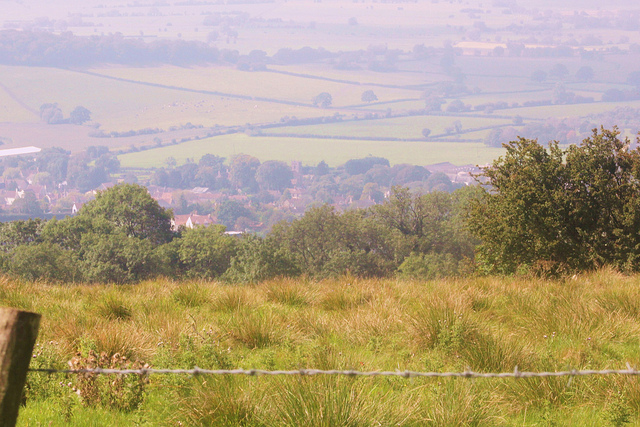Lady Rees-Mogg, mother of Conservative MP David Rees-Mogg, has been defeated by a number of citizens objecting to her planning application – including her own son!
We don't mean to say that Lady Rees-Mogg had no common sense in making the application, of course. It's just that this gives us a really good idea of the common sense and specific local knowledge that often goes into making the more clearcut planning decisions, as well as illustrating how that common sense might not be so obvious unless it's explicitly pointed out.
If your planning application will hurt the local economy, you can guarantee that it will face problems, while if it will help the local economy things will go much more smoothly.
Here are the reasons for the council's decision.
Very Attractive Undeveloped Space

Image by Paul Goodwin
The dominant reason for rejecting the application was that the undeveloped site already offered value to the area, in the form of undeveloped space which provided real measurable benefits to the local people.
Being close to the Mendip Hills, an area of outstanding natural beauty, and less than forty metres away from a conservation area, it was obvious that the planning application had some serious objections to overcome. It had to prove that it offered something that was worth potentially irrevocably damaging a part of the countryside's natural heritage.
Too Big By A Quarter
The proposed development would have increased the potential population of the village by over a quarter. This is a huge change, and not the kind of thing anyone – let alone a planning committee! – would enter into lightly.
Once again, the onus is on the developer here to prove that the development would be a force for good, given that it's such a substantial project.
Extra Infrastructure
The extra infrastructure required to support the new homes and inhabitants just wasn't there. Serious problems would have been caused for the residents.
Worst of all, unemployment is high in Hinton Blewett, meaning that an increase in the population is the last thing the local authorities are going to want to encourage.
In areas where deprivation and unemployment are rife, but where the surroundings are not so attractive and there's already a large population, you could possibly get away with a housing development, depending on the development. It could genuinely add something valuable to the neighbourhood. That's not the case in Hinton Blewett, resulting in a failed application with many objections raised.
What's Wrong With All That?
The planning application failed because there was a lot wrong with the project. It was too close to a well-protected conservation area and Area of Oustanding Natural Beauty, it didn't help the locals and it could arguably have hurt the locals.
These sorts of clearcut planning decisions are obvious in hindsight, but unless the locals had made an objection their concerns might not have been heard, and the proximity to the area of outstanding natural beauty might not have been registered.
In planning applications, the right choice is often common sense to those living on the ground; but unless you raise your voice and use the proper channels, the decision-makers might never realise how obvious that choice is!
